Northwest Permaculture Convergence
Now is the time for Permaculture to take root and grow!

Kincentricity
Kincentricity is the understanding that humans are not separate from nature, but are part of a vast family that includes plants, animals, and the land itself. This worldview fosters a sense of belonging, responsibility, and mutual care. Key Concepts of...
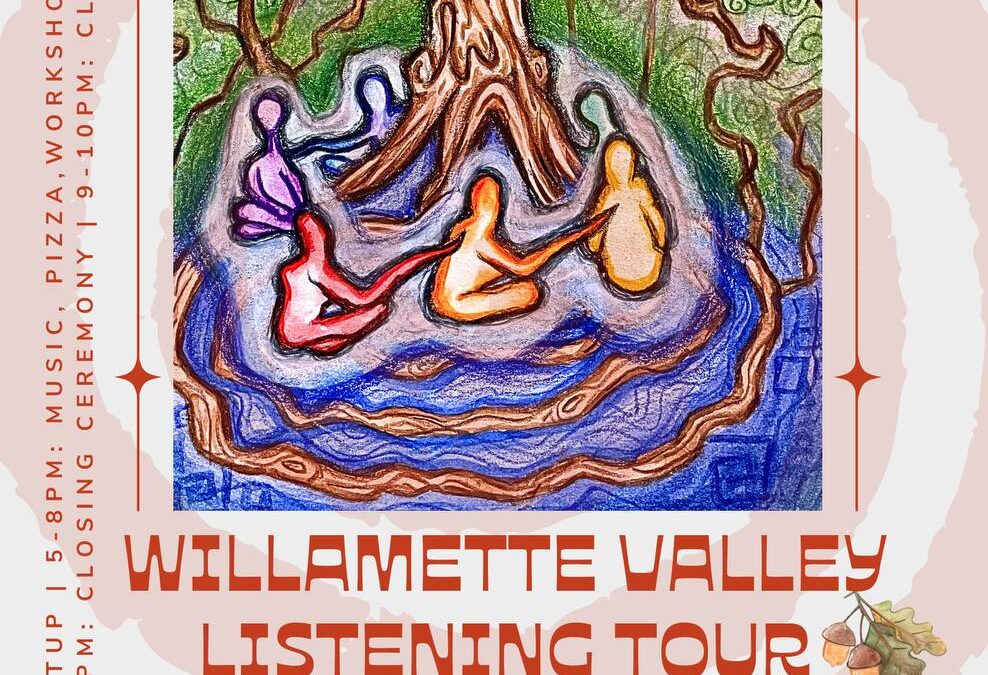
Willamette River Listening Tour
Table at the Closing Ceremony of the Willamette Valley Listening tour
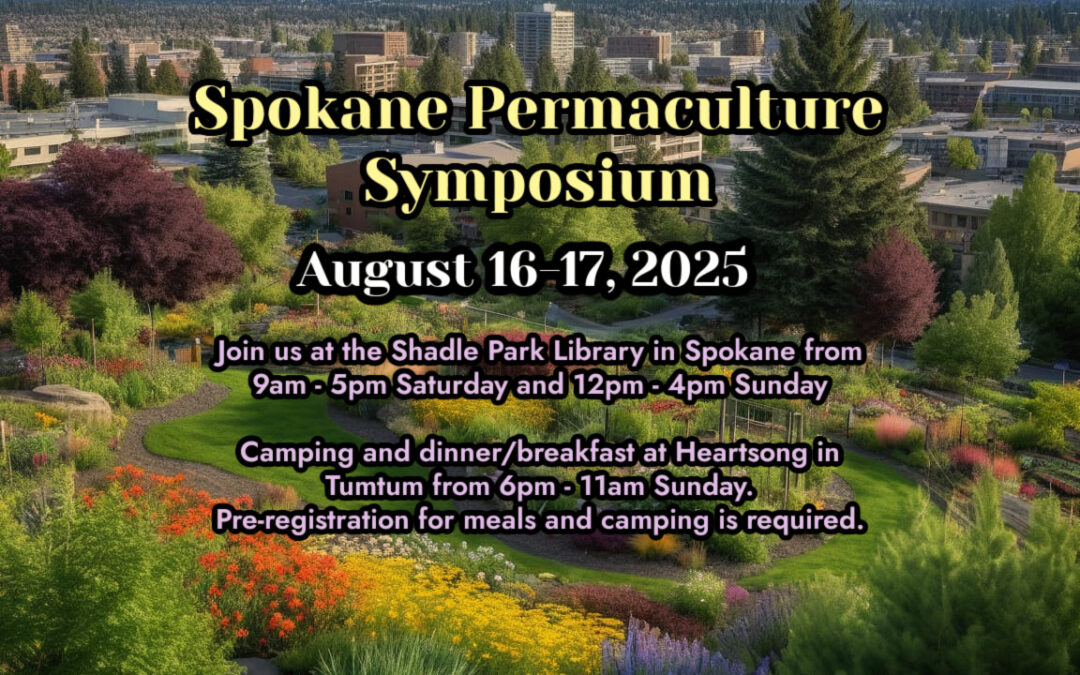
Spokane Permaculture Symposium Aug 16-17, 2025
🌿 Join the Spokane Permaculture Symposium! 🌿 Looking to connect with others passionate about regeneration, local food, and community resilience? Mark your calendar for the Spokane Permaculture Symposium, a dynamic weekend of learning, sharing, and building...

25th Fairy Congress 2025 July 17th-21st Quilcene WA
Dancing Beyond the Veil: An Invitation to the 2025 Fairy and Human Relations Congress What if the worlds beyond our sight are not just figments of imagination, but kin waiting to be remembered? What if fairies, devas, elemental beings — all the shimmering ones — are...

Global Earth Repair Convergence & Festival
UPDATE: Skeeter tells me, we will move the plans for this big Earth Repair gathering to May 2026. Big news! The Global Earth Repair Convergence & Festival is moving forward—with new dates, a more flexible format, and a commitment to accessibility and resilience....

Seeking People Seeking Land & Community
People or Land: What do we need most? The Resilient Communities Project (RCP) has recently been engaged in a dialogue about whether people or land come first for building resilient communities. They started with just a concept, found that there are people with land to...

Dance To Heal Earth Sept 2025
Please join us! This is a prayer dance, ... to express our gratitude and celebrate Life! “**𝑫𝒂𝒏𝒄𝒆 𝒕𝒐 𝑯𝒆𝒂𝒍 𝒕𝒉𝒆 𝑬𝒂𝒓𝒕𝒉 2025: 𝑺𝒉𝒂𝒓𝒊𝒏𝒈 𝒀𝒐𝒖𝒓 𝑪𝒆𝒏𝒕𝒆𝒓𝒆𝒅 𝑯𝒆𝒂𝒓𝒕** Every ceremony requires both those who dance and those who hold the container. This September 5-8, at Camp Beausite...
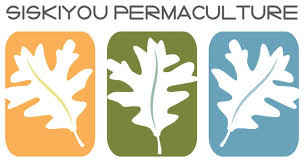
Social Forestry July Tour
This is a rare opportunity to join permaculture elder and author of Social Forestry; Tending the Land as People of Place, Hazel Ward/Vaarde, at one of these talks and workshops in the PNW. Social Forestry: Building relationships with urban watersheds Thursday, July...
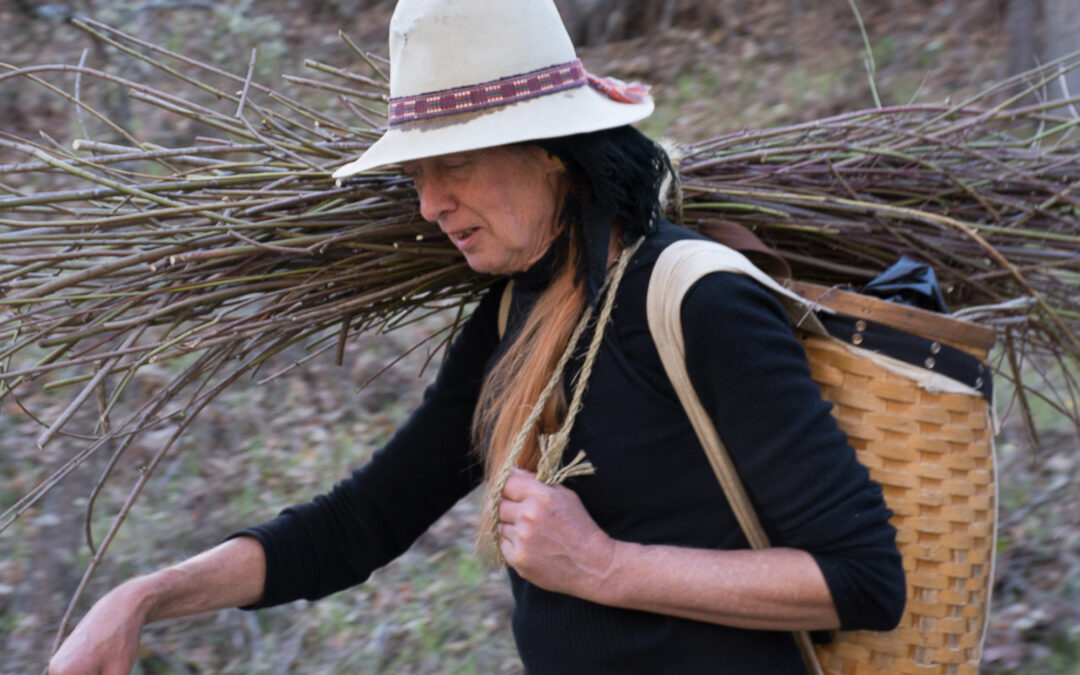
Social Forestry July Tour with Hazel Vaarde
Social Forestry: Building relationships with urban watersheds Thursday, July 10, 6 - 8 pm Bridgespace PDX, Portland, OR When the modern city came, where did the rivers and streams go? How does the urban landscape still hold old patterns and old stores? Join...
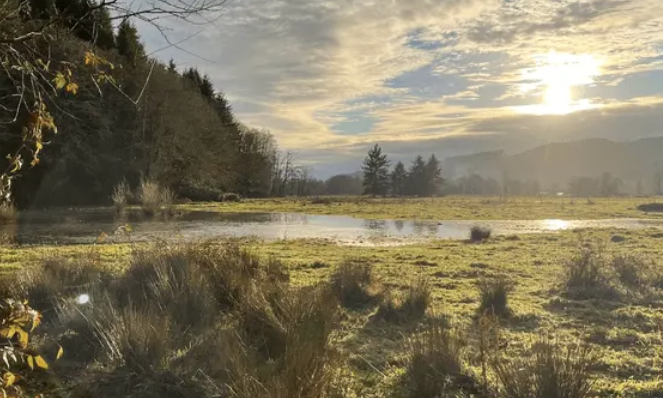
Social Forestry 2 Day Workshop
Sat. - Sun., July 12-13 Elkenmist, 53 Maki Rd., Skanokawa, WA (not far from Portland and Olympia) Join us with the honored elder Hazel Vaarde to discuss and practice being people of place. During this full 2-day event, participants are invited to join Hazel at...
